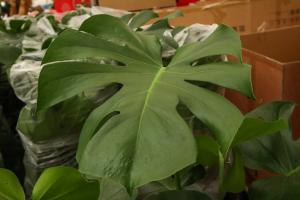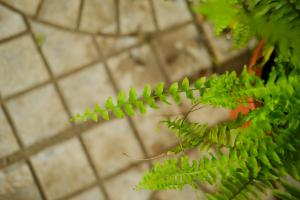How Does Salt Water Affect Freshwater Plant Cells
Freshwater plant cells are adapted to an environment with a lower salt concentration than the surrounding water. Therefore, when exposed to saltwater, plant cells undergo several changes that affect their growth and survival. Here, we will explore how salt water affects freshwater plant cells and the mechanisms behind these changes.
1. Osmotic Stress
One of the primary effects of saltwater on freshwater plant cells is the osmotic stress it causes. Saltwater has a higher salt concentration than freshwater, which leads to water moving out of the cell to achieve osmotic equilibrium. As a result, the plant cell loses water and becomes dehydrated, leading to wilting and reduced growth.
2. Ion Imbalance
Saltwater also disrupts the ion balance within plant cells. Freshwater plants have adapted to the specific ion concentration in their environment, and when exposed to saltwater, the ion balance is disturbed. The high salt concentration leads to an influx of sodium ions, which can replace essential cations such as potassium, calcium, and magnesium. This disruption can cause damage to cellular membranes, organelles, and other vital components of the cell.
3. Toxicity
In addition to the osmotic stress and ion imbalance, saltwater can also be toxic to freshwater plants. The high salt concentration in saltwater can be harmful to plant growth, leading to stunted growth, chlorosis, and even death. The accumulation of salt in the soil can also lead to a decrease in soil fertility, making it harder for freshwater plants to obtain essential nutrients.
4. Adaptation Strategies
Despite the challenges presented by saltwater, some freshwater plants have adapted to live in brackish water, which is a mixture of saltwater and freshwater. These plants have developed strategies to cope with the high salt concentration, such as the accumulation of solutes, such as sugars and amino acids. These solutes can help create an osmotic balance with the surrounding saltwater and prevent water loss.
Conclusion
In conclusion, saltwater has several significant impacts on freshwater plant cells. The changes in osmotic balance, ion imbalance, and toxicity can lead to severe damage to plant growth and survival. However, some freshwater plants have adapted to these conditions, providing insight into the mechanisms behind these adaptations. Further research into these mechanisms can provide insight into how we can better understand the impact of saltwater on freshwater plants and develop methods to protect these vital organisms.

 how many times do yo...
how many times do yo... how many planted tre...
how many planted tre... how many pine trees ...
how many pine trees ... how many pecan trees...
how many pecan trees... how many plants comp...
how many plants comp... how many plants can ...
how many plants can ... how many plants and ...
how many plants and ... how many pepper plan...
how many pepper plan...
































